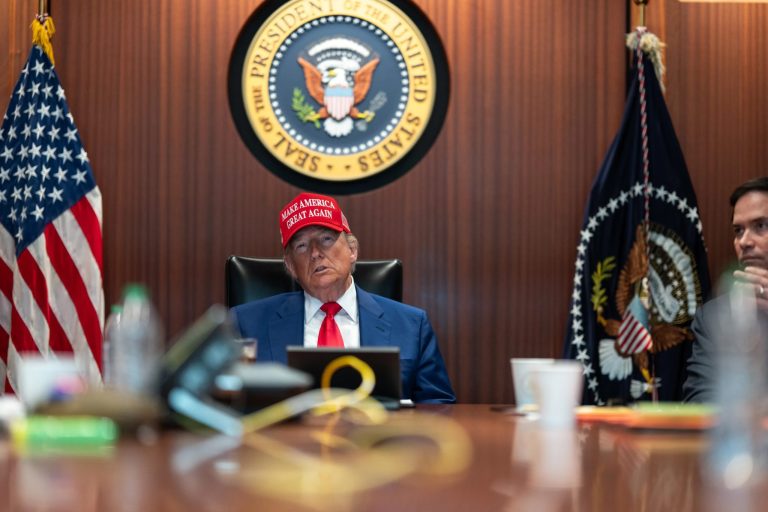WASHINGTON — The U.S. Space Force is poised for a massive funding windfall under President Donald Trump’s ambitious reconciliation bill, with its budget potentially soaring to nearly $40 billion in fiscal year 2026 — a staggering $11.3 billion increase from current levels.
The unprecedented budget structure, which defense officials describe as “one budget, two bills,” would give the Space Force $26.1 billion in traditional discretionary funding while adding another $13.8 billion through the sweeping reconciliation package. The total $39.9 billion request would represent the most dramatic year-over-year increase for the military’s newest service branch.
The funding boost is part of a broader $1 trillion defense strategy that has administration officials working overtime to convince Congress to pass the reconciliation bill by July 4.
Overall, the Defense Department stands to gain $113.3 billion from the reconciliation measure, with the Pentagon’s total budget including $848.3 billion in discretionary funding plus the $113 billion reconciliation add-on.
“The president said he wanted a $1 trillion budget for 2026 so that’s what we did,” a senior defense official told reporters Thursday, acknowledging the highly unusual nature of the funding request.
No Plan B
The approach has left the Pentagon without alternatives if the legislative gambit fails. “At this moment we’re very excited to see the Senate’s progress on reconciliation,” the defense official said, adding that DoD continues to work with congressional defense committees on the funding proposal. The Pentagon has no “plan B” if the reconciliation bill does not pass.
The reconciliation bill — sometimes referred to as the “One Big, Beautiful Bill” — is a Republican-backed legislative package that uses the budget reconciliation process to bypass the Senate filibuster and pass with a simple majority. Beyond defense spending, the measure includes major investments in border security and other Trump administration priorities while cutting spending on social safety net programs.
What makes this defense budget particularly unusual is its 10-year timeframe and mandatory spending classification. “This is the first time the DoD has received mandatory money like this,” the defense official said. “The 10-year money provides a lot more flexibility than the typical discretionary money.”
Golden Dome gets boost
For defense contractors, particularly those involved in the Golden Dome missile defense project, the long-term funding window would provide unusual stability, the defense official said. The reconciliation bill allocates $25 billion for Golden Dome, which would modernize the current U.S. missile defense system with advanced technologies including sensor satellites and space-based interceptors, is among the programs that would benefit from the reconciliation funding.
The defense official insisted this structure gives industry a stronger demand signal and stability, though it remains unclear whether this represents a one-time boost or a new baseline for future years. “Those conversations have yet to take place,” the official said.
Congressional pushback
The “one budget, two bills” approach has drawn sharp criticism from lawmakers concerned about congressional oversight. During a Senate Appropriations Committee hearing Thursday, committee chairman Sen. Mitch McConnell (R-Ky.) criticized the reconciliation approach as a “shell game.”
The Kentucky Republican pressed Air Force Secretary Troy Meink on the impact of potentially losing the reconciliation funds. “It’s critical to get the resources from both requests,” Meink responded.
Chief of Space Operations Gen. Chance Saltzman emphasized the urgency of the funding for space-related missions, particularly as the U.S. works to counter China’s growing space capabilities. The space military branch needs additional resources to carry out new programs that it’s been directed to carry out to defend satellites and strengthen U.S. space capabilities, Saltzman said.
Technical maneuvering
The reconciliation bill classifies the Pentagon funding as “mandatory” rather than “discretionary” spending — a technical maneuver required by congressional budget rules. The reconciliation process is legally restricted to dealing only with mandatory spending, revenues, and the federal debt limit, forcing lawmakers to restructure traditional defense funding to fit the legislative vehicle.
This approach allows Congress to fast-track the massive defense spending increases with a simple majority vote in the Senate, avoiding the filibuster and other procedural hurdles that typically govern discretionary spending through the annual appropriations process.
An Air Force spokesperson said most of the additional Space Force funding from reconciliation — $13.5 billion — would flow to the Research, Development, Test & Evaluation account, with an additional $300 million designated for procurement. However, execution details remain fluid.
“We’re still sorting through the execution details,” Saltzman told Senate appropriators regarding how Golden Dome funds would be allocated.
The reconciliation bill includes $150 billion in new defense funding overall, with $113 billion earmarked for the Pentagon’s fiscal 2026 budget and the remainder pushed to future years.

